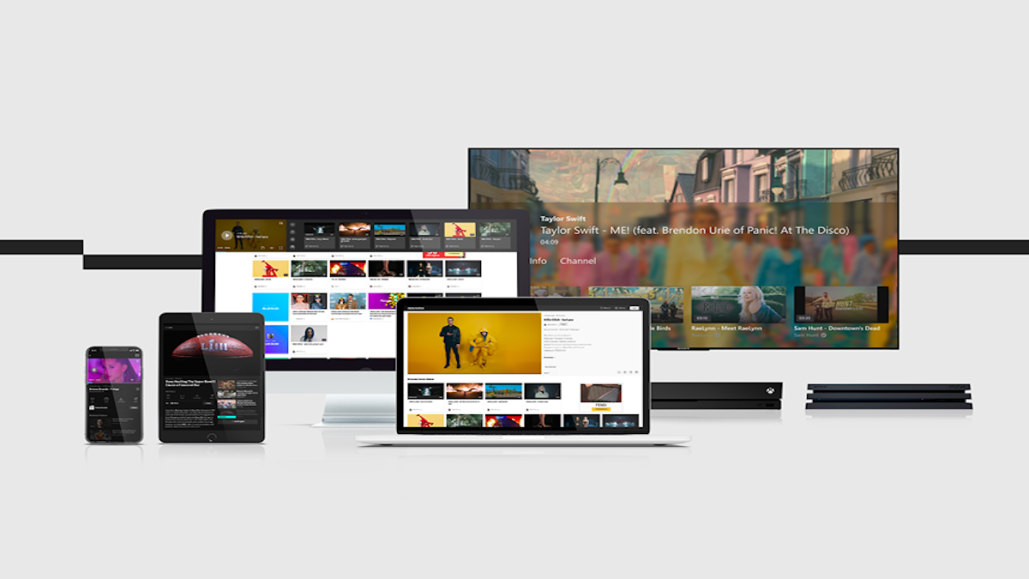Secure your place at the Digiday Publishing Summit in Vail, March 23-25

Agata Brodniewska, brand safety manager, Dailymotion
Content is king when attracting consumers but is equally essential when courting advertisers. While both stakeholders want many of the same things, they most notably want relevant content they can count on to deliver an accurate and honest message without confusion or misinformation. This is especially important for advertisers as they search for platforms they can use to promote their brands and share their messages in a proper environment.
The same dynamic also holds true in the streaming video space. Advertisers are looking to pair with videos that resonate with viewers and are in line with the ad’s content. Streaming platforms that fail to fulfill this expectation — missing the opportunity to ensure the premium caliber of content — will struggle to avoid the pitfalls that await.
For example, brands may pull their ads to avoid the embarrassment of being linked to an inappropriate, inaccurate or offensive message.
To counter this risk and prevent the worst from happening, streaming providers need to take a more proactive approach, and brands need to partner with providers equipped to fulfill their expectations.
Content creators are in control
Streaming platforms can choose whoever they want to work with, but if they have an open-door policy, anyone and everyone will walk through. This is why some apps and websites are overrun with a hodgepodge of videos that vary in quality. The volume of traffic that follows may be enough to lure some advertisers, but if the result is unsuitable content, they’ll pull their ads every time.
By then, it is too late. For example, in a highly competitive market, Quibi, a short-form streaming platform designed for mobile phones, failed to catch on despite launching during the early months of the pandemic. While video views collectively reached new highs across the industry, consumers showed little interest in the “quick bites” that Quibi promised. The monthly subscription service closed roughly six months after its debut, leaving no time to consider an ad-supported version. While that may have been the company’s next step, Quibi’s content distribution rights were ultimately sold to Roku.
As tempting as it is to raise revenue through ads, for streaming video providers without the right strategy to back up the approach, it is challenging to enter the ad-supported video space. At the same time, new entrants have struggled to make a name for themselves, whether ad-supported or not.
The essential step is to build a streaming platform — brand new or entering the ad market for the first time. This requires the highest-quality videos possible. Streaming platforms need to work with high-quality content developers capable of delivering the level of excellence that both brands and end-users anticipate.
AI and ML are critical differentiators
Once premium content is in place, streaming platforms must provide a degree of certainty that their ads will be displayed with appropriate content when advertisers pay for a promotion. Artificial intelligence and machine learning technologies are vital to achieving the ad-content alignment that brands seek. They aren’t only looking to protect the safety of their brand; they want a streaming partner that can create a genuinely personalized viewing experience.
If a consumer is watching a video about the best smartphones, it will make sense to see an ad about a related product, such as phone cases, cellular service providers or an actual smartphone. When watching a video about how to fix a leaky kitchen faucet or replace a shower head, viewers might appreciate an ad for home improvement stores, plumbing supplies, kitchen and bath items and so on. These combinations offer the perfect opportunity for brands to highlight their products, services or retail locations in a contextually relevant setting that viewers welcome.
Alternatively, it wouldn’t make much sense for a video recipe of vegetarian burgers to be paired with ads for ground beef, a steakhouse or something similar. Likewise, consumers watching a video on how to garden organically may not be interested in advertisements for traditional, chemical-based pesticides.
These nuances — differentiating between what is relevant and not merely similar — are not detected on their own. Powerful innovations in automation, particularly AI and machine learning, make all the difference, but technology alone is not enough.
Just as streaming providers must begin by offering top-notch content, advertisers must do their due diligence when selecting a streaming partner. Brands will be better positioned for success by choosing a partner invested heavily in technologies that can protect their image and help them connect with their target market.
Relevant and memorable moments are crucial for consumers
Advertisers and consumers want more of the same things than many businesses realize — they want great, contextually relevant content delivered at the moment that matters. Their reasons may be different — i.e., advertisers want targeted exposure for what they’re selling, and consumers want to be enriched, informed and entertained — but the result leads them down the same path. Consumers will inevitably gravitate toward the streaming platforms that fulfill their expectations, and advertisers are sure to do the same.
However, instead of waiting to see where consumers are headed, they would be wise to explore the value that each streaming service provides. In particular, brands should be on the lookout for a streaming partner equipped with the necessary tools to prevent copyrighted and inappropriate content from being displayed alongside their ads. They should search for a streaming service that has built technology to detect and eliminate both spam and explicit content. By being selective in their approach and ultimately choosing to work with a streaming partner dedicated to ad and content pairings, they can reach consumers in a relevant and memorable way.
Sponsored By: Dailymotion
More from Digiday

As it ramps up push to fund AI bets, Meta makes a new play for agencies
Even in the age of Advantage+, Meta needs agencies.

Zero-click reality is rewriting the rules of search for brands
Search performance concerns have reached brand boardrooms. Both organic and paid search practitioners are scrambling to find effective responses to the questions posed by AI developments.

Media Buying Briefing: Dentsu’s new CEO on how he’s going to grow the business again
Takeshi Sano takes over as global CEO, and brings with him a more outgoing and worldly approach to running the Japanese-owned holding company.





